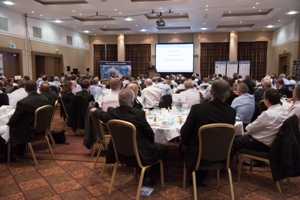From small seeds... a brief history
In 2003, Professor Alan Roach (then Dean of Communications, Engineering and Science at the University of Paisley) was keen to identify how engineering degrees could be made more attractive and effective, connecting more directly to the rich variety of industry needs and opportunities.
One of the employers consulted, Owen Quinn (CEO of Blairs Ltd), drew attention to a more broadly based "Engineering Education & Practice" industry-university initiative in Michigan.
Believing that something similar could be usefully developed in Scotland, Alan also approached:
- Tony Smith (then CEO of First Engineering)
- Peter Wormald (Site Director of CIBA Specialty Chemicals)
- Gerry Edwards (VP of National Semiconductor)
- (and a little later) Billy Allan (then CEO of Alfred McAlpine Business Services)

From those discussions, the idea for CeeD arose. The founding partners spent some time quietly developing the CeeD model across their own organisations and still contribute significantly (in time and finance) to its success.
The concept was judged ready for launch in 2006 and start-up funding was offered by Scottish Enterprise, Renfrewshire, East Renfrewshire and Inverclyde Councils and the ERDF. The CeeD Board is still largely drawn from the founding partners. CeeD is loosely based on the CEEP project in Michigan.
This project sought to increase the innovative edge for the Detroit-based major car manufacturers and their supply chain including front line electronics companies, both in R&D and in skills development.
CEEP fosters collaboration on specific issues between the car manufacturers, their supply chain partners and academics, particularly from the University of Michigan at Dearborn. It is this collaborative approach to problem solving involving large companies, smaller companies and academia that lies at the core of CeeD.
However there are significant differences in the model used here.
- CeeD is deliberately cross-sectoral in scope and has already shown that ideas developed in one industrial context can often inspire useful enhancements in other environments.
- Companies choose to be involved in CeeD or not – there is no large company 'big stick' in evidence. Our aim is to support innovative enhancement of the performance of our community of companies as a whole, with the drive in all instances coming from member companies themselves.
- We don't see large companies and smaller companies any differently so there’s an equality of approach.
- There is no organisational agenda present - CeeD exists to solve the issues that our members raise with us. As such it is the member companies (large and small) which drive CeeD's agenda, not the other way around.
